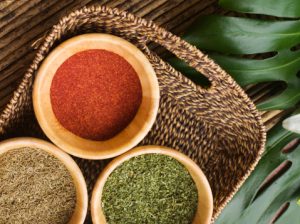
Several studies show that a diet high in salt can lead to high blood pressure. It is now believed that 20 to 40 percent of all cases of high blood pressure in the United States are due to high-salt intake.
One study reported in the American Heart Association journal Circulation, back in 2012, showed people with blood vessel damage who consumed a high-salt diet were more likely to develop hypertension or high blood pressure.
Over 5,000 people involved in the study were closely observed by the research team and assessed for their salt intake. The problem with salt is that it works with the kidneys to make the body hold more water. Those with high salt-intake had extra water that raised their blood pressure. In some cases, the retaining of water also put pressure on other parts of the body, including the kidneys and heart.
High blood pressure can lead to strokes, heart attacks and heart failure. Together, heart attack and stroke are among the most widespread health problems facing America today. In fact, heart disease is the leading cause of death.
How to spice it up and avoid high blood pressure
The American diet has often been described as bland, with the exception of the mounds of salt added. Take away the salt and many people complain, but replacing it with certain spices or herbs can in fact make the dish even better than the original recipe.
You can mix herbs and spices together to add delicious flavor to foods. Herbs such as basil, oregano, parsley and coriander are good examples. You can use fresh, frozen or dried herbs. You can spice dishes up by replacing salt with black pepper, cayenne pepper, chilli powder, curry powder and ginger powder. When it comes to steaming vegetables you can drop in a little bit of lemon juice or vinegar to add flavor. As an added precaution, avoid ready-mixed herbs and spices from the grocery store. In most cases they also contain a lot of salt. Also, if you like a lot of salad dressing or marinades, it is best to make your own because most brands at the market will be high in salt.
The health benefits of herbs and spices
While too much salt can be bad for us, herbs and spices can have the opposite impact. There are many that can be beneficial to our health. Over the last decade there has been a great deal of research conducted on spices for health. Here is a sampling of a few spices and herbs you might want to consider including in your diet:
- Ginger – this spice helps absorb ingested nutrients and minerals. It also has been known to reduce symptoms that come from detoxing, such as bloating.
- Turmeric – known as a main ingredient in curry, this spice is said to help the liver function well, thus removing toxins. Some studies suggest it has anti-cancer properties.
- Rosemary – this herb has a wonderful taste and antioxidant value. Antioxidants help reduce the risk of disease.
- Cilantro – the leaves of this plant act as an anti-inflammatory and a natural food preservative that can guard against salmonella.
Some other spices good for health include cinnamon, chilli pepper, cumin and nutmeg.
The best way to store herbs and spices
A little pre-planning can provide you with easy access to herbs and spices all year long. Spices can last longer if they are stored properly. The best approach is to put them in an airtight container, away from heat and light. Most people have a dedicated drawer for spices and put labels on the top of the jars so they can easily identify them. Lining up the spices in alphabetical order can be really helpful. Ground spices can also be stored in the freezer and still maintain good quality for six to 12 months, as long as you have them in an airtight container.
As far as herbs go, you should wash and dry them thoroughly. You can set them aside in a cool, dry place for several days or store them in a re-sealable container in the refrigerator. If you want to freeze them for long-term use, just toss them into a re-sealable zipper bag after you wash and dry them. When you need them, just break off the amount you require.
While maintaining a good supply of herbs and spices may sound like a lot more work than simply reaching for the salt, you will find that it quickly becomes an easy part of your routine; something that will keep you heart-healthy and provide you with tasty food.
Related Reading:
Lower blood pressure with herbs and spices
Here’s a snapshot of America’s health when it comes to the heart: Heart disease is the No. 1 killer. High blood pressure is a contributing cause of about 1,000 deaths a day – and one in every three American adults has the condition. About seven in 10 doesn’t realize it, putting them at risk for heart attack, stroke, heart failure and kidney disease. Continue reading…
Spice up your food for longer life
Some of us like it hot and spicy – food wise that is. In many cultures, spices bring the heat to a number of cuisines. If you already enjoy spicy foods, great, if not, you could be missing out on a great benefit. New research suggests adding spice to your food can contribute to a longer life. Continue reading…
Sources:
http://www.worldactiononsalt.com/less/how/eatingathome/index.html
http://bembu.com/detox-spices
http://www.eurekalert.org/pub_releases/2012-06/aha-tms061412.php
http://www.thekitchn.com/the-best-ways-to-clean-out-your-spice-drawer-tips-from-the-kitchn-205882
http://www.bodybuilding.com/fun/tis-the-season-6-spices-you-should-be-using.html
http://www.heart.org/idc/groups/heart-public/@wcm/@hcm/documents/downloadable/ucm_300625.pdf